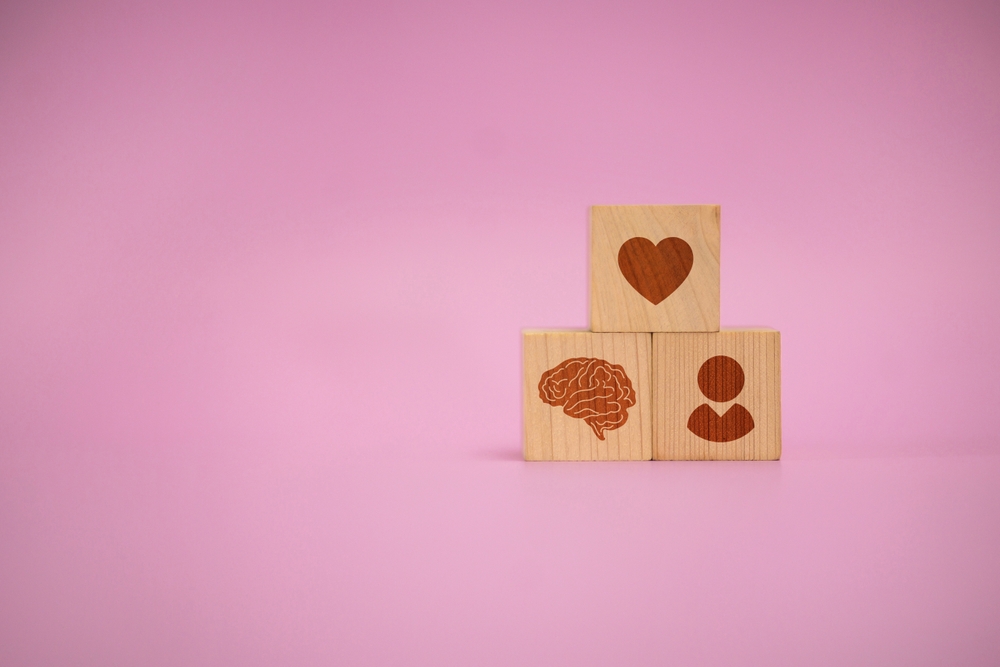
Compassion Boot Camp: Your Brain’s Favorite Workout (No Sweat Required!)

Ever notice how some people seem to radiate kindness while the rest of us are just trying not to roll our eyes in the grocery checkout line? Good news: compassion isn’t just for saints and preschool teachers—it’s a skill anyone can develop, and the benefits are kind of amazing. Think of compassion training as CrossFit for your heart, minus the protein shakes and intimidating gym selfies.
Why Your Brain is Begging You to Be Kinder
Before we dive into the “how,” let’s talk about why compassion matters beyond making your grandmother proud:
Your Body Will Thank You: Research shows that compassion training actually rewires your nervous system, particularly the vagus nerve—the superhighway connecting your brain and body. A stronger vagus nerve means better stress responses, improved heart health, and even better digestion. Who knew kindness could help with both emotional AND digestive issues?
Anxiety’s Worst Enemy: Compassion practices literally calm your amygdala—that almond-shaped troublemaker in your brain responsible for your fight-or-flight response. Less amygdala activation means you’ll stop seeing threats everywhere (including in that email your boss sent with a period instead of an exclamation point).
The Ultimate Mood Booster: People who practice self-compassion report higher levels of happiness and optimism. It’s like having an internal cheerleader instead of that critical voice that likes to remind you of that embarrassing thing you did in 2007.
Emotional Resilience: Compassion practitioners bounce back faster from setbacks and failures. Instead of spiraling into shame spirals, they dust themselves off with a “well, that happened” attitude and move forward.
Five-Minute Compassion Workouts Anyone Can Do
Ready to flex that compassion muscle? Here are some simple practices that don’t require meditation cushions, incense, or changing your name to something unpronounceable:
1. The Self-Talk Makeover
Try This: Catch yourself in self-criticism and ask, “Would I talk this way to someone I care about?” If the answer is no (hint: it’s always no), reframe your thought with the kindness you’d offer a friend.
Real-Life Application: When you mess up a presentation, instead of “I’m such an idiot,” try “That was tough, but public speaking is hard for most people. What can I learn from this?”
2. The Traffic Light Practice
Try This: Next time you’re stuck at a red light (instead of mentally drafting angry emails to the city planning department), use those 30 seconds to send good wishes to:
- Someone you love
- Someone you feel neutral about (like the mail carrier)
- Someone who drives you bananas
Why It Works: This systematic approach to wishing others well helps expand your circle of care beyond your immediate favorites.
3. The Five-Second Connection
Try This: During everyday interactions (with the barista, cashier, coworker), make brief eye contact and genuinely wish them well in your mind.
Bonus Points: Notice something specific to appreciate about them and mention it if appropriate. “Thanks for being so patient with the long line” goes a long way.
4. The Body Scan Reboot
Try This: When stressed, take 60 seconds to scan your body for tension. Instead of criticizing yourself for being stressed (again), offer kindness to those tense areas: “My shoulders are working hard today. I’m going to give them some compassionate attention.”
Secret Benefit: This practice not only builds self-compassion but also interrupts stress cycles before they spiral.
5. The Failure High-Five
Try This: When you make a mistake, place your hand on your heart (research shows physical touch activates your calming system) and say, “This is a moment of suffering. Suffering is part of being human. May I be kind to myself right now.”
Pro Tip: This three-part acknowledgment comes from Dr. Kristin Neff’s research on self-compassion and works like magic during tough moments.
How to Know If Your Compassion Training Is Working
Unlike biceps, compassion gains aren’t immediately visible in the mirror, but you’ll notice these signs of progress:
- You recover faster from criticism or mistakes
- Your inner dialogue sounds less like a drill sergeant and more like a wise friend
- You find yourself genuinely interested in others’ well-being (not just pretending to care while waiting for your turn to talk)
- Difficult emotions like shame and anxiety don’t hold you hostage as long
- You catch yourself extending kindness automatically in situations where you used to judge
The Compassion Challenge
For the next week, try this: At the end of each day, ask yourself, “When did I show compassion to myself today? When did I extend it to others?” Start noticing compassion opportunities you might have missed.
Remember, compassion isn’t about being perfect—it’s about creating a kinder relationship with your own imperfections and connecting more authentically with others. The science shows that with regular practice, your brain and body will transform in ways that benefit not just your health and happiness, but ripple out to everyone around you.
So go ahead—flex that compassion muscle. Your nervous system will high-five you for it!
Cited Research Articles
Sinclair S, Kondejewski J, Jaggi P, et al. What Is the State of Compassion Education? A Systematic Review of Compassion Training in Health Care. Academic Medicine: Journal of the Association of American Medical Colleges. 2021;96(7):1057-1070. doi:10.1097/ACM.0000000000004114.
Patel S, Pelletier-Bui A, Smith S, et al. Curricula for Empathy and Compassion Training in Medical Education: A Systematic Review. PloS One. 2019;14(8):e0221412. doi:10.1371/journal.pone.0221412.
https://journals.plos.org/plosone/article?id=10.1371/journal.pone.0221412
Condon P, Makransky J. Sustainable Compassion Training: Integrating Meditation Theory With Psychological Science. Frontiers in Psychology. 2020;11:2249. doi:10.3389/fpsyg.2020.02249.
https://www.frontiersin.org/articles/10.3389/fpsyg.2020.02249/full
Gilbert P. The Compassionate Mind: A New Approach to Life’s Challenges. New Harbinger Publications. 2009.
https://www.newharbinger.com/9781572248403/the-compassionate-mind/
Kok BE, Waugh CE, Fredrickson BL. Compassion meditation in a randomized controlled trial is associated with improved heart rate variability and heightened positive emotional states. Psychological Science. 2013;24(1):103-111.
Lutz A, Brefczynski-Lewis J, Johnstone T, Davidson RJ. Regulation of the neural circuitry of emotion by compassion meditation: Effects of meditative expertise. PLoS One. 2008;3(3):e1897.
https://journals.plos.org/plosone/article?id=10.1371/journal.pone.0001897
Neff KD. Self-compassion: An alternative conceptualization of a healthy attitude toward oneself. Self and Identity. 2003;2(2):85-101.
Neff KD, Germer CK. A pilot study and randomized controlled trial of the mindful self-compassion program. Journal of Clinical Psychology. 2013;69(1):28-44.63663333






